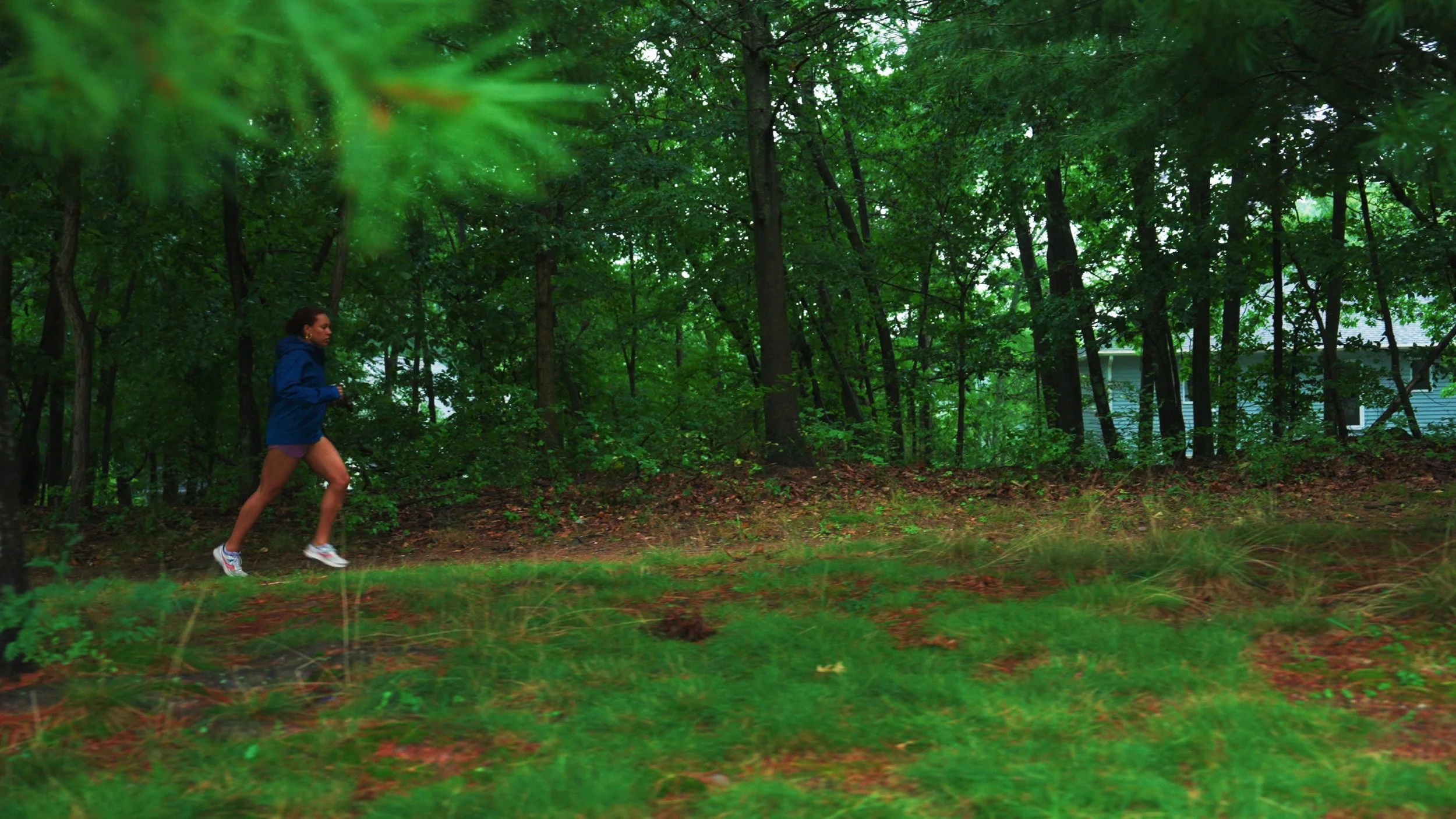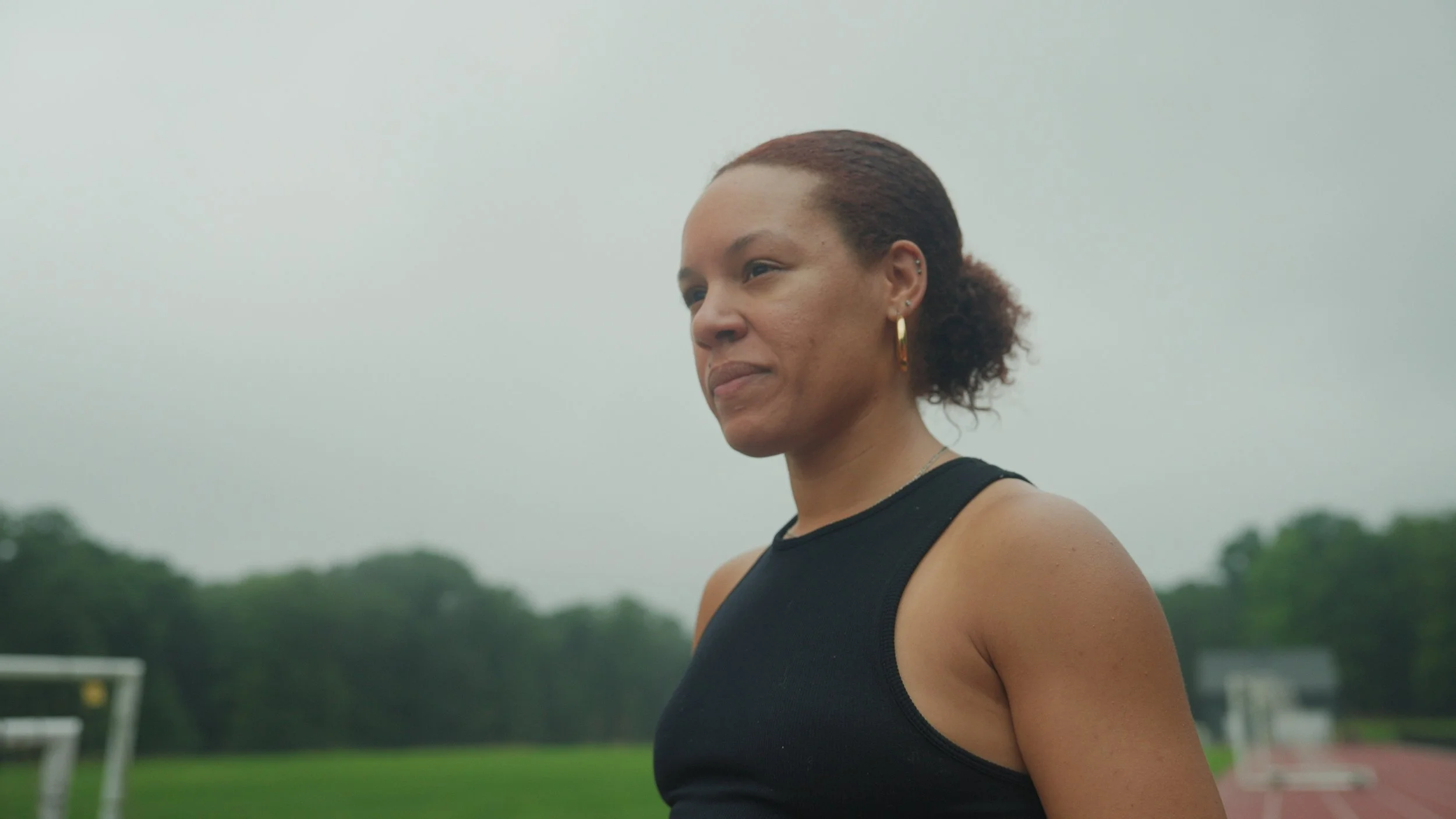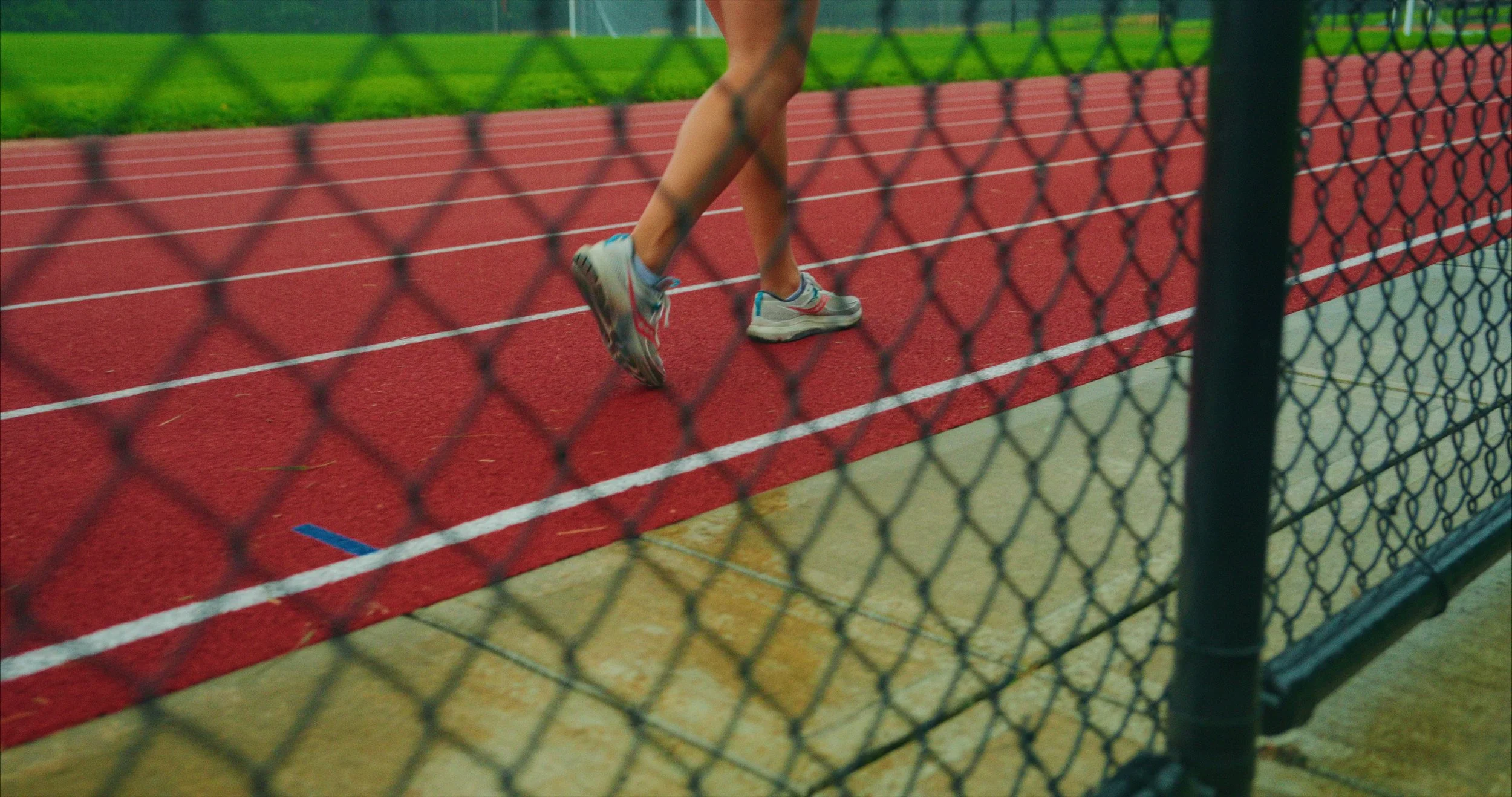CELEBRATE THE JOY OF MOVEMENT WITH A GOOD RUN
CAFETERIA SITS DOWN WITH CO-FOUNDER ETANA SOLOMON TO DISCUSS GRATITUDE, CAREGIVING AND MAKING PEACE WITH PARKINSON’S.
Image courtesy of Issac Abakah
To the average non-athletic regular person, the elusive runner’s high sounds like a myth. For many of us, physical activity feels like a punishment, harkening back to elementary school days when seemingly sadistic gym teachers forced us to run a mile underneath the hot sun.
It’s easy to take movement for granted, especially when you’re able-bodied. When your health starts declining, when your physical form becomes a prisoner to Parkinson’s Disease, it’s only then do you realize how freeing and euphoric running can be.
Etana Solomon and her mother Kathleen Camp co-founded A Good Run to make peace with Parkinson’s. Motivated by Kathleen’s diagnosis and Etena’s role as her primary caregiver, A Good Run is presented as a 5K and upcoming documentary created to shift the narrative around running from a grueling form of exercise to a liberating method of movement. A progressively debilitating disease, Parkinson’s is a chronic progressive neurological disorder that affects the body’s ability to function, robbing them of the joy of something as simple as being able to move. A Good Run examines how “our bodies and health play a role in how we live and connect. Our goal for this project is to inspire and raise awareness for the millions of families affected by Parkinson’s Disease every day,” Etana shares.
Prior to her diagnosis, Etana’s mother was a special education teacher. Through A Good Run, Etana is ensuring that Kathleen’s commitment to caring for those who live differently is not wasted. “My mother’s generosity, humor and love continues to bring joy to everyone she meets. I hope that this project provides a platform to share her perseverance and perspective with the world,” Etana adds. A Good Run carries Kathleen’s legacy forward, encouraging others to be grateful for their health and that of their loved ones.
Continue scrolling to learn more about A Good Run, the importance of gratitude and how we can support those living with Parkinson’s.
Cafeteria: What led you to create A Good Run?
ES: We wanted to do something that really allows us to make an impact beyond just what we’ve been going through. My mom was diagnosed with Parkinson's and has been slowly losing her ability to function. When you’re wrapped up in the depths of the healthcare system, it’s really tough. So many of our conversations are around logistics, medication and insurance – all of these really non-sexy things. It was important for us to have a project where we felt in control and where we could focus on the positive. There’s no cure for Parkinson’s, it’s a chronic progressive disease. My mother is only getting worse, so there’s not a lot of hope sometimes. We wanted to create our own hope and that’s how A Good Run came to be.
Can you dive into the documentary and the creative process involved in capturing and visually articulating such a personal story?
ES: The creative process started with my fundraiser for the 2020 New York City Marathon. I joined with the Parkinson’s Foundation, which gave me guaranteed entry. My goal was to raise $10,000. I wanted to include my mom in the process and also reflect the realities of what we were going through, so I documented that journey. After the race, my mom and I felt the footage was far too centered on my story and the marathon itself. It was important for us to tell her story while she’s still able to share it. We repurposed some of the footage and added interviews that focused more on her experience. It was also imperative to visually illustrate the juxtaposition between our lived experiences frame by frame. I am someone who is living without any ailments and has her physical health at 100 percent, while my mother’s physical health is deteriorating. From there, we reimagined our mission and focused on what we wanted the audience to take away from the documentary – showing gratitude for the health you have.
What do you hope people take away from the documentary? How do you want runners to feel after they finish the 5K?
ES: I think it’s really important for all of us to show gratitude for our health, as well as the health of our loved ones. So much is going on in the world and it’s easy to feel discouraged and hopeless – it takes a huge toll on our mental health. However, if you’re able to get up every day and get up out of bed, brush your teeth, wash your face and eat some food, that is something to be grateful for, on a physical level. Obviously, there are other factors that can make it hard for us to function in our day-to-day lives, but if you have your physical health and are able to look around at healthy loved ones, that is a gift. The 5K is a way for people to push themselves and exercise their good health, as well as reflect on the power and strength the human body has. We want people to not take their health for granted.
As a CT native, can you speak to the effect socio-economic equity can have on how people view health?
ES: The cost of care is incredibly high. Healthcare can cover direct medical needs, but my mother needs additional care in order to have a better quality of life and certain services are not covered. Healthcare is also geared towards a specific set of ailments. The traditional model is “you get sick, you get treated, you get better or you die.” The services for people who are living differently are inadequate, especially if the patient has a progressive disease like Parkinson’s or they have a variety of concurring and sometimes contradictory needs.
How can you use both individual and collective movement to navigate through grief and healing?
ES: Movement is how I’ve grounded my mental health. Caregiving is very intense. Caring for my mom, as lovely and undeserving of this disease as she is, makes it even harder. For me, grounding and channeling my energy in productive ways has been really important. Running is so easy, you just lace up and go, and sometimes that run is a walk. A lot of people have this misconception that running has to be super fast and physically taxing in order for it to be considered a real run, but I think just moving your body and spending some time outside is so healing for us as humans. Running has definitely helped me process and navigate being a caregiver and has enabled me to provide the best and most patient support for my mom.
For us, it’s all about channeling our energy into a project that can grow and raise money for the Parkinson's Foundation. We want to support communities that share and resonate with our story. We want something positive to come out of this disease when the day to day is anything but. Channeling this collective power reminds us that it’s beyond ourselves because Parkinson’s is bigger than us. It’s a disease that affects millions of people across the world and it’s important to put that into perspective and recognize that incredible organizations like the Parkinson’s Foundation are truly thoughtful, kind and hardworking. They are genuine from the top down. I’ve been able to speak with the CEO John Leer and hear from him what motivates him to do this work. It’s rare in 2025 for people to care so much and to take steps towards radical change that not only supports the pursuit of a cure, but the actual programming that helps those living with the disease now.
Will there be more opportunities to support A Good Run in the future?
ES: Our 5K run is kicking off this Sunday, November 9th at 9am at East Shore Park in New Haven. We are also hosting a screening of the documentary, A Good Run: Finding Peace on Parkinson’s on December 13th at 2pm in New Haven. We would love to have you there.





